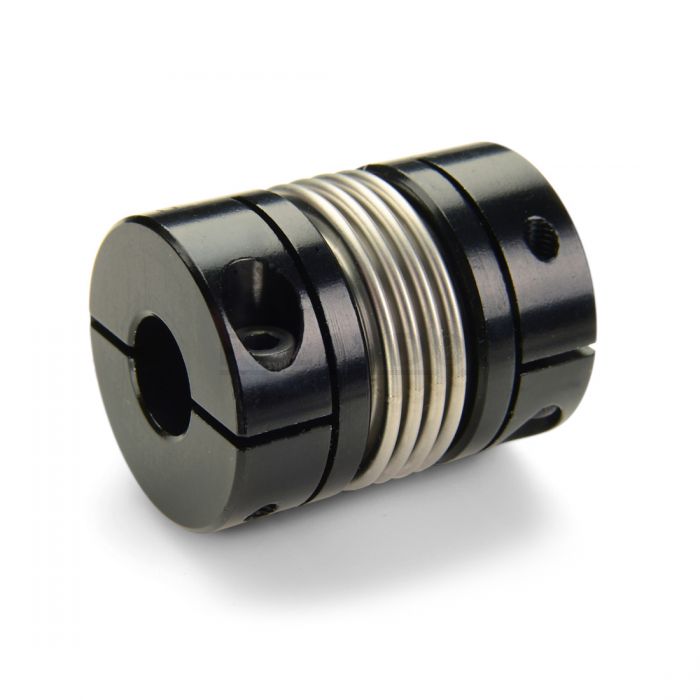Product Description
Products Description:
|
Delivery time |
20 Days |
|
Applicable Industries |
Coupling |
|
Bellows wall thickness |
0.15-2mm |
|
Material |
Stainless Steel 304 |
|
Size |
Customization |
Detailed Images:
About us
Our companyZheJiang YueDing company produce quality products and work to provide constant communication with our clients. Our dedication to CHINAMFG allows us to be a stable solution in the marketplace with a quick lead time. We primarily focus on exhaust pipes, including metal hoses and other pipes that are used within the automotive industry . We have designers, engineers, and others who are involved in the process of manufacturing parts. We explore the top materials to use as well as continuously add more technology and innovation to produce higher quality parts.
Exhibitions
Every year we john 4-5 oversea fairs to meet our customers.What we show is our ability, and what you feel will be our profession . We take the time to answer questions and ensure that our clients understand all there is to know about our products. Further, we work with all of our clients to help find the right products that will meet both needs and budget. We work hard to provide good customer service and ensure that it is never just about sales, but about building a relationship.
Certificate
FAQ
1. Q: How about the payment terms?
Normally 30% deposit in advance. It can be discussed when we have friendly relationship.
2. How about Delivery time?
We can produce 350,000 pcs per month, large capacity. Normally, 15 days.
3. Q:Can I get a sample?
For sure, we are willing to supply samples free for quality checking.
4. Q : What’s the price?
Reasonable price, competitive price, and acceptable prices, which are all based on good quality.
Any requirements or question,welcome to “Send” us an e-mail Now!!!
/* January 22, 2571 19:08:37 */!function(){function s(e,r){var a,o={};try{e&&e.split(“,”).forEach(function(e,t){e&&(a=e.match(/(.*?):(.*)$/))&&1

Are there Specific Temperature and Torque Limits for Different Bellows Coupling Materials?
Bellows couplings are available in a variety of materials, each with its own temperature and torque limits. The choice of material depends on the specific application requirements, including environmental conditions, operating temperatures, and torque demands. Here are some commonly used bellows coupling materials and their respective temperature and torque limits:
- Stainless Steel: Stainless steel bellows couplings are widely used due to their excellent corrosion resistance and high strength. They can operate in a wide temperature range, typically from -40°C to 400°C (-40°F to 752°F). The torque limits for stainless steel bellows couplings vary based on their size and construction but can range from a few Nm to several hundred Nm.
- Aluminum: Aluminum bellows couplings are lightweight and offer good corrosion resistance. They are suitable for applications with lower torque requirements. The temperature limits for aluminum couplings range from -30°C to 150°C (-22°F to 302°F), and the torque limits generally range from a few Nm to around 50 Nm.
- Brass: Brass bellows couplings are known for their electrical conductivity and are often used in applications where electrical isolation is required. They have temperature limits similar to aluminum couplings, ranging from -30°C to 150°C (-22°F to 302°F), and torque limits comparable to aluminum couplings.
- Titanium: Titanium bellows couplings offer exceptional strength and corrosion resistance, making them suitable for demanding applications. They can operate in a temperature range of -50°C to 300°C (-58°F to 572°F), and their torque limits range from a few Nm to several hundred Nm.
- Inconel: Inconel is a high-temperature alloy that provides excellent performance in extreme heat and corrosive environments. Inconel bellows couplings can operate in temperatures from -60°C to 600°C (-76°F to 1112°F) and have high torque capacities, ranging from a few Nm to over a thousand Nm.
- Plastics: Certain plastic materials, such as PEEK (Polyether Ether Ketone), are used for bellows couplings in specialized applications. Plastic couplings offer lower torque capacities compared to metal couplings but can operate in a temperature range of -30°C to 250°C (-22°F to 482°F).
It is essential to consult the manufacturer’s specifications and guidelines to select the appropriate bellows coupling material for your specific application. Choosing the right material ensures that the coupling can withstand the operating conditions and delivers reliable performance throughout its service life.

Can Bellows Couplings Be Used in Applications Requiring Electrical Isolation Between Shafts?
Yes, bellows couplings can be used in applications that require electrical isolation between shafts. The bellows coupling’s design inherently provides electrical isolation due to the absence of physical contact between the metal components. This feature makes bellows couplings well-suited for scenarios where electrical continuity must be maintained or prevented between the connected shafts.
In certain industrial setups, such as in motor-driven systems or equipment utilizing sensitive electronics, maintaining electrical isolation is crucial to prevent interference or electrical currents from flowing between the driving and driven shafts. In such cases, a bellows coupling acts as an ideal solution because the bellows element, made of non-conductive material, separates the two shaft ends while still transmitting torque.
Additionally, the material used for the bellows element can be selected to ensure optimal electrical insulation properties. For example, using materials like stainless steel or aluminum for the bellows ensures high electrical resistance and prevents any current leakage or conduction through the coupling.
By providing electrical isolation, bellows couplings help in safeguarding sensitive electronic components, minimizing the risk of electrical damage or interference, and ensuring the reliability and performance of the overall system.

What are the Key Design Considerations when using Bellows Couplings for Precision Applications?
When using bellows couplings in precision applications, several key design considerations must be taken into account to ensure optimal performance and accuracy. These considerations include:
- Torsional Stiffness: In precision applications, maintaining torsional stiffness is crucial to minimize angular deflection and maintain accurate positioning. Choose bellows couplings with high torsional stiffness to ensure precise torque transmission.
- Backlash-Free Design: Backlash can introduce positioning errors in precision systems. Select bellows couplings with minimal or zero backlash to maintain accurate motion control.
- Radial Runout: Ensure that the bellows coupling has low radial runout to prevent eccentricity and vibration during rotation, contributing to smoother operation.
- Material Selection: Choose materials with excellent fatigue resistance and high strength to withstand continuous operation and provide long-lasting performance.
- Misalignment Compensation: Evaluate the required misalignment compensation for the specific application. Bellows couplings should be capable of accommodating both angular and axial misalignments without sacrificing precision.
- Compact Size: For applications with limited space, consider compact bellows couplings that provide high torque capacity in a small form factor.
- Temperature and Corrosion Resistance: If the application involves extreme temperatures or harsh environments, opt for bellows couplings made from materials that offer temperature and corrosion resistance.
- Vibration Damping: Bellows couplings with good vibration damping properties help reduce resonance and maintain system stability during high-speed operations.
- Electrical Isolation: In precision applications with sensitive electronics, consider bellows couplings that provide electrical isolation to prevent electrical currents from passing between shafts.
- Customization: Some precision applications may require tailored solutions. Collaborate with coupling manufacturers to explore custom designs that meet specific requirements.
By carefully considering these design aspects, engineers can select the appropriate bellows coupling that aligns with the precision application’s needs, ensuring accurate motion control, reliability, and enhanced performance.


editor by CX 2024-03-07
